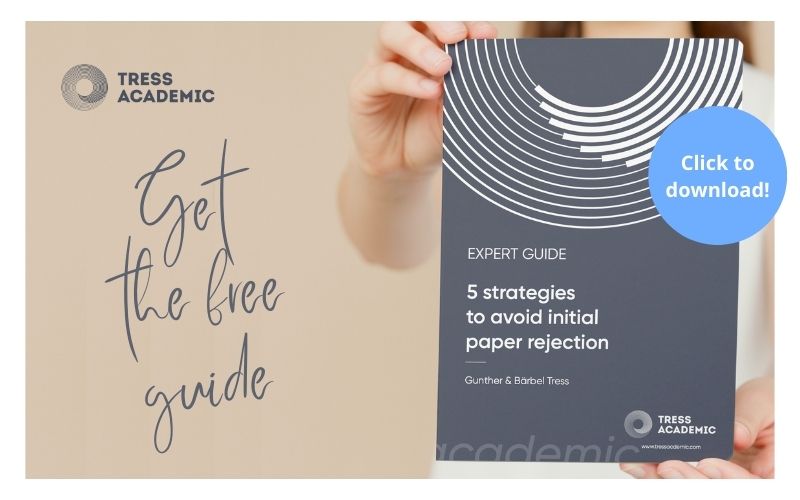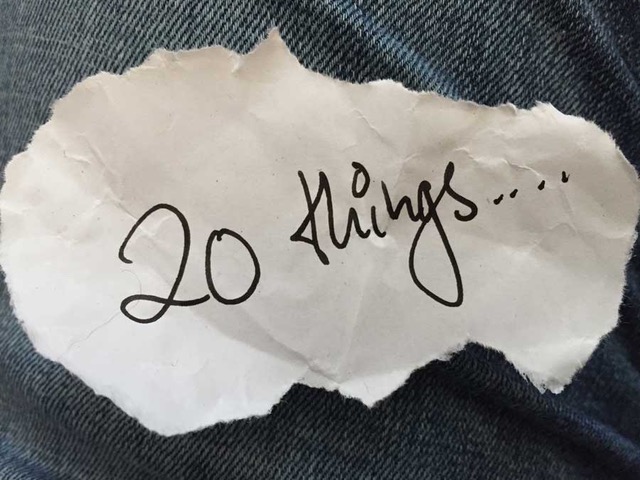As a newbie in the journal publishing world, you might have many questions on writing a paper and getting it published. Here, we list short answers to 20 common questions that PhDs and Early-Career Researchers often have before they start their paper writing.
As a PhD student and an Early-Career-Researcher, there will come a moment when you want to publish your research in a journal. But if you have never done this, and if you have nobody to guide you through these steps, this can be pretty tricky. You enter the unknown world of journals, you probably feel like an absolute beginner, and you’re afraid of making mistakes. You’ve never done this, and you have a ton of questions but nobody to ask. Here we give you a short overview on 20 things that will be helpful when you enter the paper-writing world.
The questions we address here originate from the many discussions we had with participants of our paper-writing courses. These are questions that newbies in the journal business ask us over and over again. Here you will find some short answers to help you further in this crucial initial phase of paper writing.
1. Can everybody submit a paper to a journal?
Yep! Papers can be submitted by anyone who wants to do so, provided you have something meaningful to say to the relevant research community. You do not have to be a specific academic rank to write and submit papers.
2. Do I need to be invited to submit a paper to a journal?
No! The large majority of papers sent to journals are unsolicited manuscripts that the researchers submitted just to get their work published. You don’t need to be invited to submit. Few researchers indeed get asked to write a paper about a certain topic for a journal.
3. When is a good time to submit to journals and when is not?
There is no specific time when it is better or worse to submit. Journals have some submission peaks during the year, but the best time for you to submit your paper is when you feel your paper is ready.
4. How long will it take me to write a paper?
This is one of the most commonly asked questions. The answer: it depends! Whether you’re an experienced writer, whether you enjoy writing, whether you’ve got all the research for the paper done, whether you write with co-authors, or whether you received support with your writing … these all may influence the writing time. You see, there is no good answer. We saw papers that were written in three weeks, others took three months, others took almost a year. As a rule of thumb, if you have to do most of the work yourself and have little support, calculating 2-4 months for crafting a paper might be realistic.

5. Shall I first write the paper and then look for a journal or the other way round?
First, determine the paper topic. Once you know what your paper will be about, look for an audience and a journal that is interested in publishing this topic. This allows you to write the paper for this specific audience and increases the chance of getting accepted.
6. How to find a journal where I can publish my work?
You can do several things to find the right journal for your paper: Browse online databases for journal topics, check in which journals the key papers cited in your research are published, or check in which journals papers like yours are published. Check our post #91 to Find the right journal for your paper following these 8 steps.
7. What topics and papers are journals interested in publishing?
Journals serve a specific audience–often a niche group of the research field they are placed within. The papers that journals select for publication should provide a certain benefit to the readers in their niche. Thus, those papers that fit very well with the interests of the readership of the journal are preferred. Check the journals’ homepages for instructions regarding their readership. Also, have a look at our post #103 for How to find a paper topic.
8. What makes a good paper?
This is another tricky question. What is good? That’s not always easy to say. A good paper is certainly a paper that provides novel and interesting research on a relevant research topic. It is a topic that other researchers might be working on as well, and therefore they would benefit from your specific insights. A good paper is certainly well written and easy to follow.

9. How many references to include in a paper?
Keep the use of references to the necessary level. Of course you need to give credit to all the sources you used, specifically if you refer to the latest state-of-the-art research. Yet information that is classified as common knowledge in a field often does not require a reference.
10. Do I have to cite all the important people in my field?
No. Cite the relevant work that helps you to frame and explain your own work. Show in which context your work should be seen, but don’t put references in your text to show off.
11. When should I start working on my paper?
The sooner the better! ! Paper writing takes time, and if you’re new to the field, you need to train your writing muscle first. Thus, it takes a while to reach a level where you start producing, and starting too late will delay your work.
12. Should my supervisors be co-authors?
Co-authors are people who have actively and intellectually contributed to the research that is reported in the paper, or helped create the paper. If your supervisors have contributed in this way, they should be on board, but there is no such thing as an honorary authorship. Find more details on this question in our blog post #80: Do I have to include my supervisor as a co-author?
13. Does it matter how many people you write the paper with?
Not for the journal and not for the evaluation of your research. Having more co-authors is not better or worse. Include those people who were involved in the research and the paper and you’re fine.
14. How many reviewers will see my paper?
Depending on the journal and on the complexity of your paper typically 2 to 3 reviewers will be appointed for a paper.
15. Do reviewers see my name?
Again, this depends on the individual journal. Some journals run their peer-review system author-name open, and in this case the reviewer would see your name. Others apply a double-blind system where the names of reviewers and authors are withheld. Check the journal website for information on which system the journal of your choice applies.
16. What will reviewers look at when judging my paper?
Reviewers, like editors, aim to get a quick overview of your paper and to build up an opinion of it rapidly. The abstract, title, and conclusion of your paper, along with the references, help them to quickly build this impression (see our blog post #9 “What reviewers of your paper first look at” for further details).
17. How long does the peer-review process take?
This depends on how quickly the journal finds reviewers for your paper and how long it takes them to review it. Typically, a paper is handled with 2 review rounds at the most. A single review round can take 1-2 months.
18. Do I have to answer all the comments from reviewers?
Yes, you should address all comments that the reviewers make. This does not mean you have to implement every suggestion they come up with, but don’t completely ignore them either. For further details please see our blog post #34 “Seven features of a good response to reviewers”.
19. What should I do if my paper is rejected?
If you have a paper rejected from a journal this does not mean that you cannot get it published at all. Various reasons can cause paper rejection, and many of them can be avoided by careful preparation. If rejection happens you still have several options on how to move ahead with your paper. See our post #42“My paper got rejected! What now?” for possible options.
20. How long does it take from start to finish for my paper to be published?
While this question is important because it helps you plan the writing time within your project, it is nonetheless very difficult to answer precisely because it depends on many factors. Above, we assumed writing the paper takes 2-4 months, the maximum of 2 review rounds, including revisions from the reviews, will also take about 2-4 months. Therefore, it is realistic to plan on 4-8 months from the start of the paper until it is fully published.
Don’t forget, you have a great influence on the timeline of your paper. A high-quality paper needs less time in peer-review and requires fewer revisions, thus it will go faster. Keep this timeline in mind when building a publishing strategy for your project (see our blog post #38 “Why you need a publishing strategy” for how to build it).
If you are just about to start your first paper, then check out our blog post “#5 How to get started with writing papers? Good luck with your writing, reach out if you need help or sign-up on the waiting list for our next paper-writing course: Paper Writing Academy.
Relevant resources:
- Blog post #5: How to get started with writing papers?
- Blog post #9: What reviewers of your paper first look at
- Blog post #34: Seven features of a good response to reviewers
- Blog post #38: Why you need a publishing strategy
- Blog post #42: My paper got rejected! What now?
- Blog post #80: Do I have to include my supervisor as a co-author?
- Blog post #91: Find the right journal for your paper following these 8 steps
- Blog post #103: How to find a paper topic.
More information:
Do you want to successfully write and publish a journal paper? If so, please sign up to receive our free guides.
© 2020 Tress Academic
#WritingPapers, #PaperWriting, #AcademicWriting, #JournalPaper, #WritingHacks, #FirstTimeAuthor, #PhD
